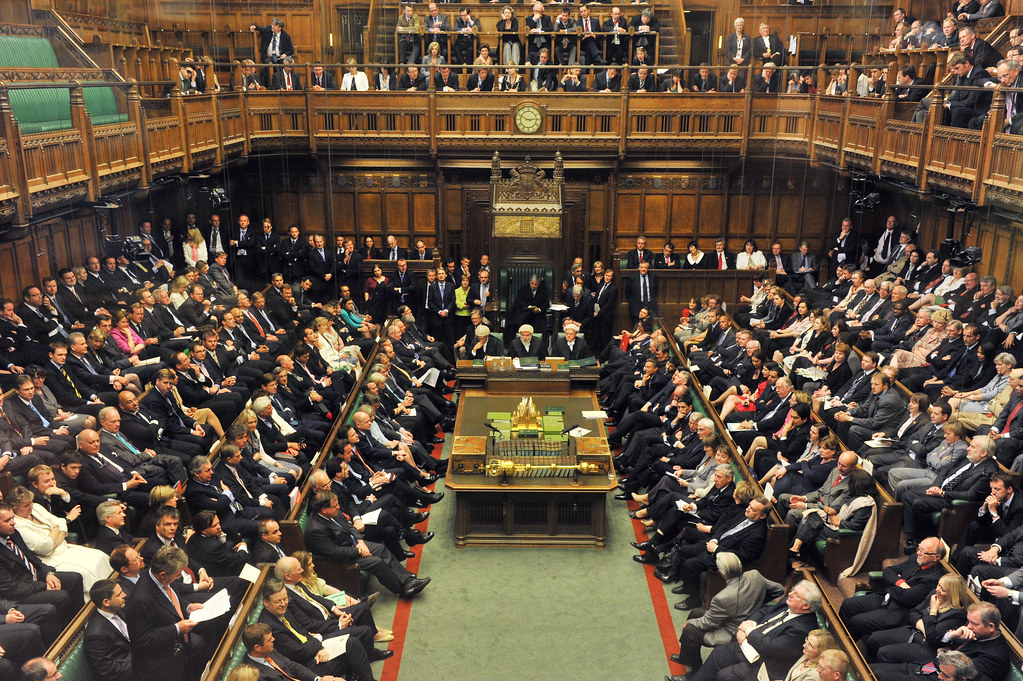
On 23 February, the House of Lords backed Lord Alton’s Genocide Amendment to the UK Trade Bill in an effort to prevent the government from negotiating bilateral trade agreements with countries committing genocide by 367 votes to 214. The importance of the Genocide Amendment cannot be understated, for it offers an apparatus to condemn and punish states that commit genocide if multilateral treaties and statutes would prove insufficient.
International opinion is slowly beginning to coalesce in its condemnation of China for its forced sterilisation, mass rape and forced labour programme aimed at ‘eliminating’ Uyghur, Turkic and Muslim culture. The week of 22 February alone saw the Canadian House of Commons declare China to be committing genocide and call for Beijing to be stripped of the 2022 Winter Olympics and the Dutch House of Representatives support a proposal that declared China’s treatment of Uyghurs to be genocide.
However, the multilateral mechanisms that have arisen following the Holocaust and the genocides in Darfur, Rwanda and Srebrenica in the 1990s, namely the 1948 Genocide Convention and the 2005 Responsibility to Protect, are doomed to fail when the genocide-perpetrating force has the economic and military might of China or is a permanent member of the UN Security Council.
Taking the definition of genocide established by the Genocide Convention, it is without doubt that China’s forced sterilisation programme makes the state guilty of genocide. The issue with the Convention is that trial and punishment for genocide is left to “a competent tribunal of the State in the territory of which the act was committed”. When China ferociously denies that a genocide is taking place and that their camps in Xinjiang are strictly for the purpose of ‘re-education’, it becomes apparent that in this case, this clause is completely futile.
There is room in the Convention for an international court to rule on accusations of genocide. But China has never recognised the authority of the International Criminal Court, refusing the sign to Rome Statute in 1998, and could veto any Security Council referral to the Court. Then if we turn to the International Court of Justice, it is only able to offer advisory opinions when there are disputes over treaties, suggesting that the international court route offers no viable solution to the Uyghur genocide.
If we turn to the Responsibility to Protect, established in 2005 to redefine the notion of sovereignty and place a burden of responsibility on all states to intervene and end cases of genocide, war crimes, ethnic cleansing and crimes against humanity, the issue comes from where it derives its legal competence. By deriving its competence from Chapter VII of the UN Charter, the UN Security Council, there is one significant hurdle for the notion of effective intervention to overcome: the veto held by permanent members of the Security Council. China’s position as a permanent member of the Security Council reduces the likelihood that the Council would unanimously agree that China is “unwilling or unable” to protect its citizenry from genocide from slim to none. These issues arise before even beginning to discuss the legal controversies surrounding Responsibility to Protect and the consent of the host state.
Such multilateral mechanisms can prove useful but only in a state where genocide can be ended militarily. This leads one to summate that the Genocide Convention and Responsibility to Protect are not the universal principles they were devised to be.
Then how can Western democracies, that emotionally pledged ‘Never Again’ after The Holocaust and the Darfur, Rwandan and Srebrenica genocides, honour their commitments to the victims and survivors of genocide if not through military might?
This is where we turn to the Genocide Amendment to the Trade Bill, which is due to be debated in the Commons in the coming weeks. Lord Alton’s amendment seeks to introduce an extra layer of accountability to the trade agreements signed by British governments. It proposes the creation of a parliamentary committee of legal experts to make judgments on ‘credible reports’ of genocide by a party to a trade agreement with the UK. Lord Alton’s proposal is a way of stopping the UK from any indirect complicity in genocides and reframing the political debate around potential trade partners.
One major sticking point for the government, however, is the current economic reliance on Chinese imports. In 2019, the UK had a trade deficit of £18.3 billion with China. The Genocide Amendment asks the parliamentarians to look beyond this and compels them to significantly alter the paradigm around trade, shifting the primary focus from economic gain to human solidarity and compassion.
As Lord Alton confesses, the Genocide Amendment is a “modest attempt” in beginning to address previous failings to predict or prevent genocide, or protect victims of genocide. But it compels parliament to go beyond rhetorical concern and condemnation and empowers the UK to unilaterally declare that it will not trade with genocide-perpetrating nations.
To enact the wishes of Lord Alton, as well as Holocaust survivors Ruth Barnett MBE and Dorit Oliver-Wolff BEM, the Commons can set the moral benchmark for countries engaged in trade with genocide-perpetrating economies and would demonstrate to the world the British value that “trade is not worth the price of a people”.



Average Rating